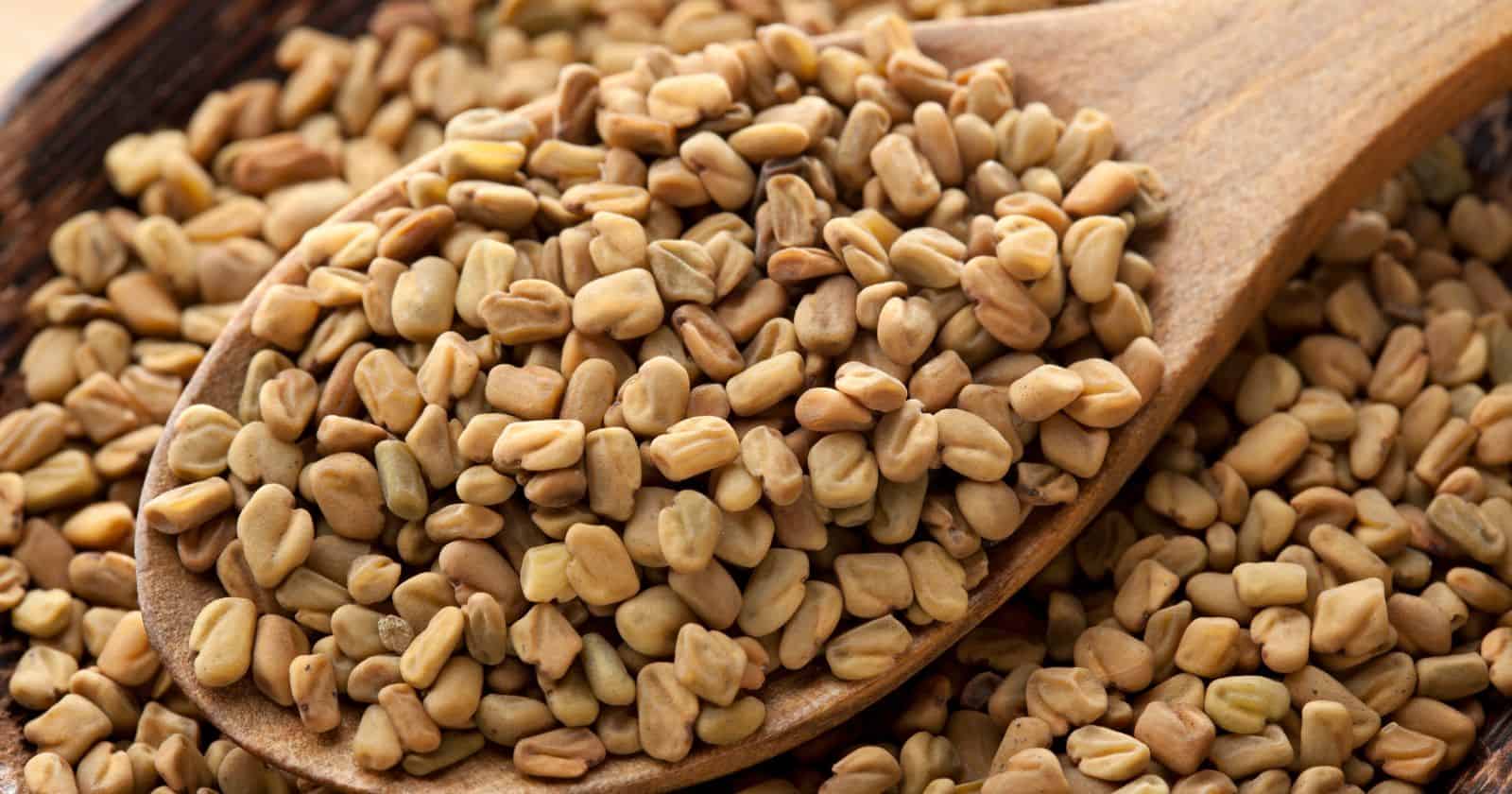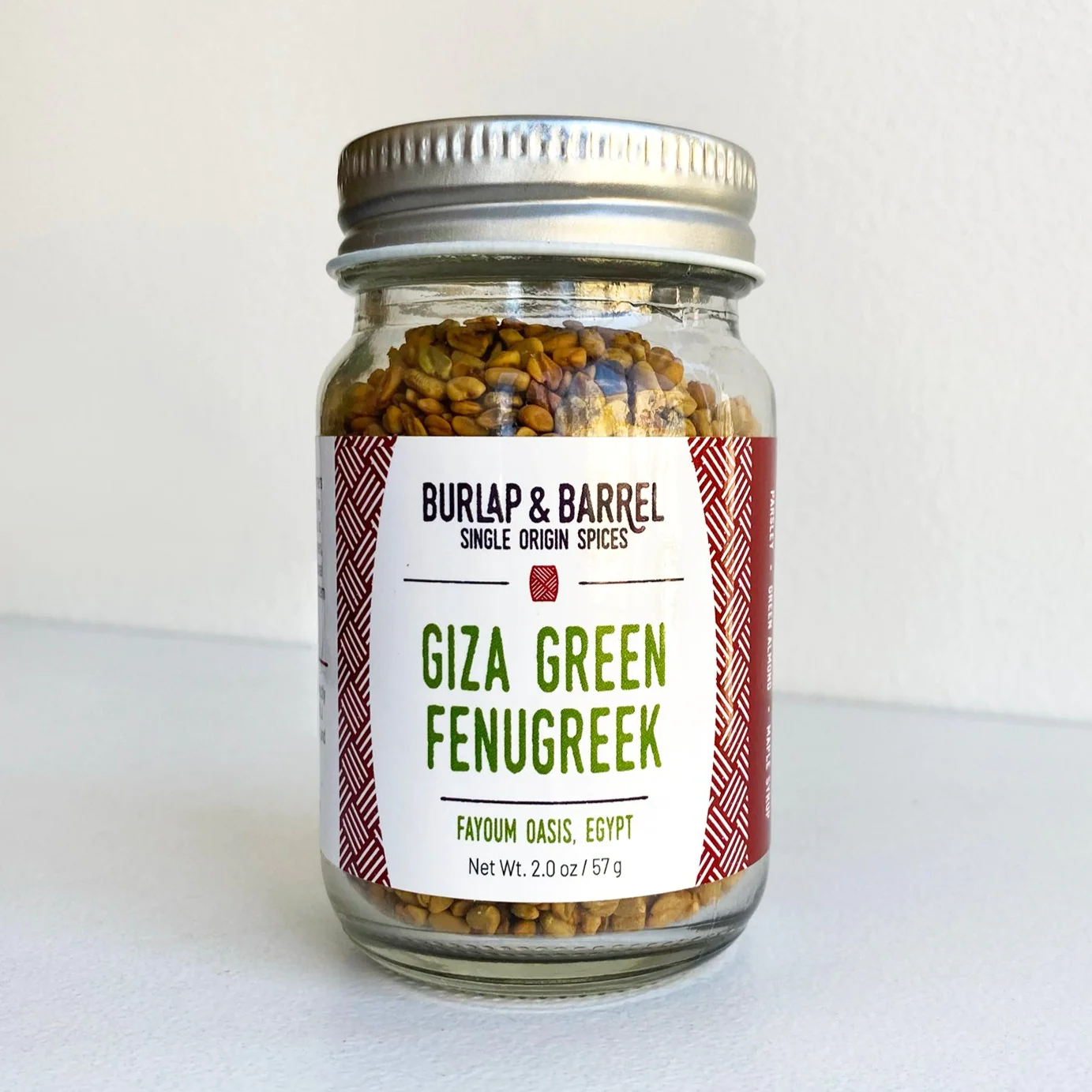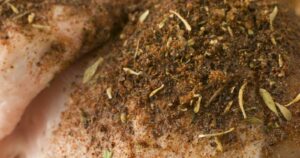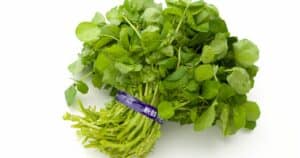Are you struggling with a low milk supply as a new mother? Have you been searching for natural ways to boost your breast milk production?
Look no further than fenugreek, a powerful plant with many health benefits.
Fenugreek has long been used as a medicinal herb and culinary
In this article, we will delve deeper into the uses and benefits of fenugreek and explore the potential side effects and dosages associated with taking this herb.
We’ll also discuss incorporating fenugreek into your daily routine, whether through supplements, teas, or adding it to your meals.
So sit back, relax, and discover the wonders of fenugreek for yourself.
What is Fenugreek?
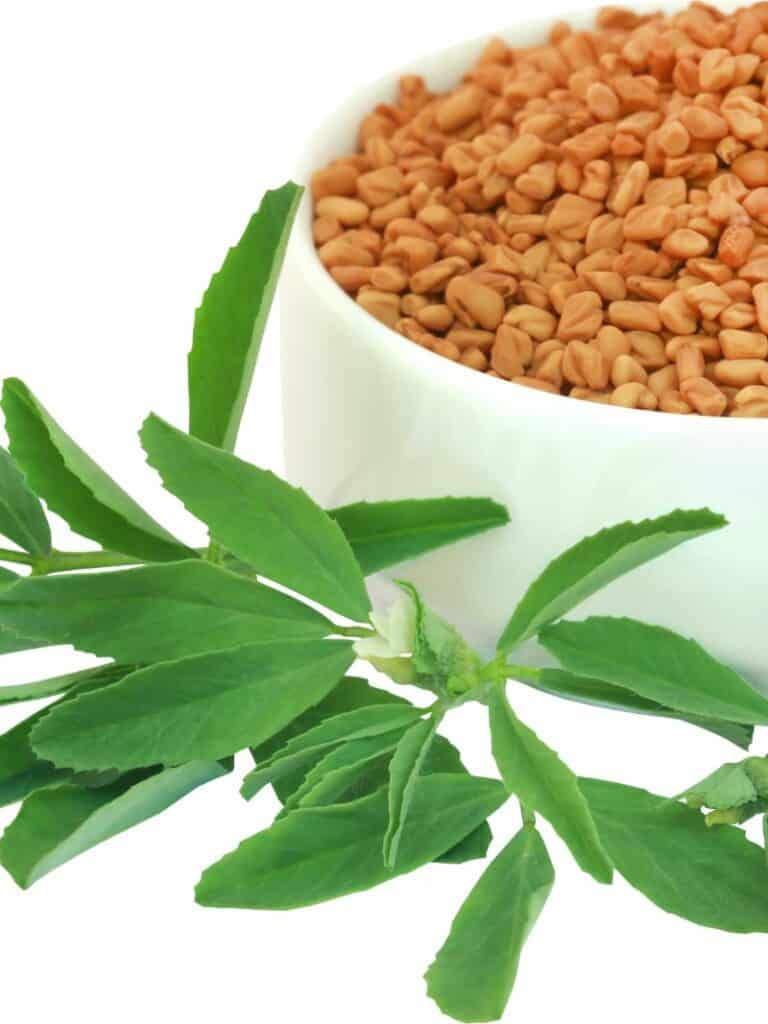
Fenugreek is an herbaceous plant used for centuries for medicinal and culinary purposes. It has a strong, sweet aroma and a flavor that resembles maple syrups. This herb is native to the Mediterranean, southern Europe, and western Asia. It has clover-like leaves and small, brown seeds.
Medicinal Uses
Fenugreek has been used in alternative medicine for many years. It has been shown to have several health benefits, such as:
- Lowering blood sugar levels: The seeds contain compounds that can improve insulin sensitivity and lower blood sugar levels in people with diabetes.
- Increasing milk production in breastfeeding women: Fenugreek seeds have been found to increase milk production in nursing mothers.
- Reducing inflammation: Fenugreek seeds may help reduce inflammation in the body, which can lead to various health problems.
Health Benefits of Fenugreek
Fenugreek is known for its ability to regulate blood sugar levels, making it a popular choice for those with diabetes. Several studies have shown that taking fenugreek supplements can decrease fasting blood sugar levels and improve glucose tolerance.
This is primarily due to the presence of a compound called trigonelline, which acts as a natural insulin and helps to control blood sugar levels.
Additionally, fenugreek seeds are fiber-rich, slowing down carbohydrate absorption and preventing sudden spikes in blood sugar levels.
Other Benefits
In addition to its blood sugar-regulating properties, fenugreek has several other potential health benefits. These include:
- Digestive Aid: Fenugreek seeds can help relieve constipation, indigestion, and stomach inflammation.
- Anti-Inflammatory: Fenugreek contains anti-inflammatory compounds, making it helpful in treating conditions such as arthritis and eczema.
- Lactation: Fenugreek has long been used as a natural remedy to help increase milk production in breastfeeding mothers. This is thought to be due to its ability to stimulate the production of prolactin, a hormone necessary for milk production.
- Cholesterol: Some studies suggest that fenugreek can help lower “bad” cholesterol (LDL) levels in the body, potentially reducing the risk of heart disease.
- Weight Loss: The fiber in fenugreek seeds can help promote feelings of fullness and reduce appetite, making it a valuable tool in weight loss efforts.
How to Incorporate Fenugreek into Your Daily Routine
Fenugreek, a herb commonly used in Indian cuisine, is known for its numerous health benefits. Incorporating fenugreek into your daily routine can be done through supplements, teas, and culinary uses.
Supplements
Fenugreek supplements are available in various forms, such as capsules or powders. The recommended dosage is 500-600mg, taken up to three times daily.
Fenugreek supplements can help regulate blood sugar levels, improve digestion, reduce inflammation, and increase lactation in breastfeeding women.
Teas
Fenugreek tea steers fenugreek seeds or leaves in hot water for a few minutes. It can be consumed plain or with added honey or lemon for taste.
Fenugreek tea supports healthy digestion, boosts immunity, reduces inflammation, and promotes healthy milk production in lactating women.
Culinary uses
Fenugreek leaves and seeds can be used in culinary dishes such as curries, stews, and salads. Fenugreek seeds can also be roasted and powdered to add to
Fenugreek is known for its unique and slightly bitter flavor, which can add depth and complexity to dishes.
Potential Side Effects of Fenugreek
Fenugreek is generally safe for most people when consumed in moderation. However, like any supplement, it does have potential side effects that users should be aware of. In particular, fenugreek may cause the following side effects:
Allergic reactions
Some people may be allergic to fenugreek, especially if they have a history of allergy to other legumes, such as peanuts or soybeans. Allergic reactions may include skin rash, hives, itching, and difficulty breathing.
Interference with medication
Fenugreek may interfere with the absorption and effectiveness of certain medications, including blood-thinning, birth control, and diabetes medications. If you are taking any medication, consult your doctor before taking fenugreek.
Effects on blood sugar levels
Fenugreek may lower blood sugar levels, which is desirable for people with diabetes. However, it may also cause hypoglycemia in some individuals, especially if taken in large doses or combined with other blood-sugar-lowering drugs.
If you have diabetes, carefully monitor your blood sugar levels when using fenugreek.
Other potential side effects of fenugreek include gastrointestinal upset, diarrhea, and a maple syrup-like odor to urine or sweat. These side effects are usually mild and go away on their own. Pregnant women should avoid fenugreek as it may induce labor or cause miscarriage.
Where to Buy Fenugreek
Fenugreek is widely available in health food stores, natural supplement shops, and online retailers. Some popular places to buy Fenugreek include:
- Local Health Food Stores: Many health food stores carry Fenugreek in various forms, such as capsules, powder, and tea bags.
- Natural Supplement Shops: Specialized supplement shops offer a wider range of Fenugreek products, including tinctures, extracts, and topicals.
- Online Retailers: Online marketplaces like Amazon, Vitacost, and iHerb also offer a vast selection of Fenugreek supplements at affordable prices.
- Traditional Herbalists: If you prefer a more traditional approach, look for a local herbalist who can make Fenugreek tea, poultice, or salve according to your specific health needs.
Things to Consider Before Buying Fenugreek
Before you buy Fenugreek, there are a few things to consider:
- Quality: Check for the supplement’s purity, potency, and quality by looking for certifications like GMP, NSF, or USP.
- Dosage: Follow the recommended label dosage or consult a healthcare professional to avoid potential side effects.
- Allergies and Interactions: Fenugreek may cause an allergic reaction or interact with certain medications, so it’s best to consult a healthcare provider before trying.
With its numerous health benefits and wide availability, Fenugreek has become a popular herbal supplement among many health enthusiasts.
But always research, consult a healthcare provider, and buy from reputable sources to ensure your safety and satisfaction.
Fenugreek Substitutes
Fenugreek is an herb commonly used in Indian and Middle Eastern cuisine. It has a distinctly sweet, nutty flavor and is often used in
However, you can use a few substitutes to achieve a similar flavor profile if you don’t have fenugreek.
Maple Syrup
Maple syrup has a similarly sweet, nutty flavor to fenugreek, making it a good substitute. Use about half the amount of maple syrup as you would fenugreek in a recipe.
Cumin
Cumin has a slightly earthy, nutty flavor that can mimic the taste of fenugreek in a pinch. Start with a small amount and adjust to taste.
Coriander
Coriander has a sweet, citrusy flavor that can complement a dish like fenugreek. Use a small amount and add more as needed.
Mustard Seeds
Mustard seeds have a distinct nutty flavor that can mimic the taste of fenugreek. Use them sparingly, as they can have a strong taste.
Curry Powder
Curry powder often contains fenugreek as one of its ingredients, so using it as a substitute can help replicate the flavor. Use a blend that contains fenugreek for the best results.
In conclusion, fenugreek has a unique flavor profile that can be difficult to replicate, but a few substitutes can come close. Experiment with different herbs and spices to find the best replacement for your recipe.

